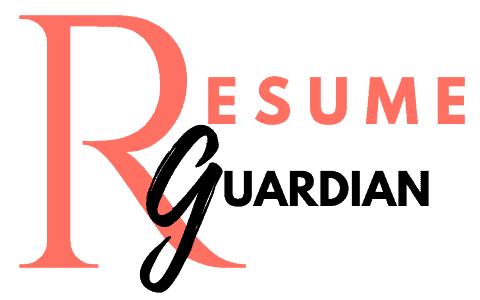
Once you submit the job application, the hiring manager will likely call you for an interview. While preparing for the job interview is critical, checking if you are ready is also essential.
Preparing for your job interview beforehand gives you the confidence to talk clearly and with clarity, demonstrating that you are the right candidate for the job.
So how do you prepare yourself before attending your next job interview?
The essential steps to prepare for a job interview are – Doing company research, Practicing answering interview questions, Being honest in your answers, Being on time for the interview, Packing your interview bag with essentials, Turning off your mobile, and Thinking through “What makes you unique for the job role”.

Good preparation using an effective answering framework ensures you confidently deliver your answers.
Adding sufficient prior job examples and accomplishments would significantly enhance your chances of impressing the hiring manager and getting that job offer.
This article will discuss the crucial preparation steps required before attending your next job interview.
Company Research Is The Key To Interview Success

An excellent way to prepare for an interview is by gathering as much information about the company as possible. This includes the company’s history, its mission statement, and other relevant details.
Spend some time doing online research, and gather all relevant information such as the Company’s Values and Mission Statement, Financial Data, Products and Services, Industry Trends, Annual Reports, Pending mergers and acquisitions.
Highlighting your accomplishments and skill sets is crucial to your interview. But company research matters just as much, and doing company research before your interview puts you way ahead of the competition.
Follow the steps below to help with company research:
- Gather enough information to answer the interviewer’s questions confidently.
- Show how well-rounded you are when it comes to the job market.
- Absorb new information and prepare yourself to answer questions confidently.
Doing well in interviews isn’t just about education, skills and experience, it’s equally important to know as much as possible about the company you are interviewing for.
Practice, Practice, Practice

I get nervous when I don’t get nervous. If I’m nervous I know I’m going to have a good show.
Beyonce Knowles
You may feel silly doing this, but it’s essential. Before the interview, reflect on how you handled certain situations in the past.
Practice saying the messages that you’ll deliver during the interview. This will help you prepare for the questions that they’ll ask. Having a list of these will help keep your mind focused.
As interviewers now ask for examples of how you can perform certain tasks and activities, they’re more likely to ask for feedback on improving the company’s operations.
Below are helpful tips to help you practice well before going for your interviews:
- Gather interview questions.
- Create a framework on how to answer each question. Never create a scripted answer.
- If available, practice recording yourself answering, or pull in a friend or family member.
- Create flashcards with interview questions so that you can answer the questions in any order.
- If you’re practicing alone, watch your recordings and make improvements. If a friend or family member is helping you, ask for feedback.
The bottomline to practicing is to know yourself. Knowing your areas of improvement and working on that helps to reduce the stress during interview. Your focus on the interview should be to connect with the interviewer, which may not be possible if you are struggling to come up with answers.
Give Honest Answers In Job Interviews

It’s best not to try to fudge your way through an interview. You may get caught in the middle of your tall tale, which can be embarrassing, and you could lose your chances at the job.
After all, you don’t know what the interviewer is looking for with his or her questions, so pulling out a textbook-style answer that you think he or she wants to hear may not be the best answer at all.
Too often, people make their own claims in their CVs to get hired. Be prepared to show your expertise in an area that the company is looking for; sometimes, companies might go for real-time tests during an interview
Below are some helpful tips that you can follow :
- Don’t lie about your skills or work experience.
- Talking about your strengths is good, but take care not to exaggerate.
- Be ready with one of your weaknesses and how you are working to overcome that.
- Be genuine in your conversations.
It’s best not to try to fudge your way through an interview. You may get caught in the middle of your tall tale, which can be embarrassing , and you could lose your chances at the job
Never Be Late For Job Interviews

It’s essential to arrive on time for the interview. Doing so will allow you to get settled and prepared before the session begins.
Being late for an interview is a sign that you’re not paying attention to the details. It can also be a sign that you’re not serious about the job
You want to make a good impression during the interview by showing up on time. Arriving a few minutes early is also a great way to stand out from the other candidates.
Below are some helpful tips that you can follow :
- Research the interview location the prior day, and map out the route you have to take.
- Allow buffer time for travel and consider traffic.
- Aim to arrive at least 15 minutes before the interview time.
- Pack your interview bag on the prior day; this gives you one less headache on the actual interview day.
- If you have a choice, choose an interview slot during mid-morning or early afternoon. Avoid early morning if you are not used to waking up very early.
Show up on time for job interviews. Arriving a few minutes early is also a great way to stand out from the other candidates
Come Well Prepared For Job Interview

You will never get a second chance to make a good first impression, so prepare well in advance for your interview and use visualization techniques.
Bring a pen and notepad to take notes. This shows preparedness; it prevents the awkward situation of asking your interviewer for a pen and paper.
Take notes when the interviewer asks questions that they’re not expecting to hear. You can also write down names, company information or other queries that might come up during the interview.
Below are some helpful tips that you can follow :
- Pack your interview bag, and carry resumes, cover letter, email printouts, identity card, water bottle, mobile phone, battery charger, pen, and notepad.
- Practice your answer framework for the standard interview questions.
- Practice “Tell me about yourself.”
- Study your resume well, and be prepared to give more details on your accomplishments and work in your previous jobs when asked by the interviewer.
You will never get a second chance to make a good first impression, so prepare well in advance for your interview and use visualization techniques.
Turn Off Your Mobile Phone

Before entering the interview room, you may want to turn off your cell phone or other electronic devices. You don’t want your phone going off during an interview.
Also, don’t bring anything with you that’s not related to the job. If you have many piercings, remove them to avoid distracting the interviewer. Wearing strong cologne or perfume is also not recommended.
Your cell phone must be completely silent or switched off before entering the interview room. But ensure you keep your cell phone switched on while traveling before reaching the interview venue. In case the interviewer wants to contact you, make yourself available.
Below are some helpful tips that you can follow :
- Switch off your mobile phone just before entering the interview room.
- Or keep your mobile phone in flight mode.
- Or keep your phone in silent mode, without vibration, so that after the interview, you can call back the person trying to reach you.
Before entering the interview room, you may want to turn off your cell phone or other electronic devices
Think Through “What Makes You Unique”?

Think of this as your “selling point.” What is it about you that makes you stand out?
While you don’t want to appear to be self-centered, it’s good to recognize your strengths in general and the particular strength(s) that qualify you for this specific job. Make sure you think this through before the interview.
What the interviewer really wants to know is “How does your experience provide value to them”? One of the most important factors that employers look for in a candidate is the ability to show skills and experience. This is also a great way to show that you’re capable of performing well in a job.
So why do employers ask this question?
- Interviewers want to know whether you have the experience and skills to contribute immediately to the job.
- Interviewers want to see your confidence when discussing your experience and accomplishments.
- And finally, they want to know how well you understand the job role and whether you have researched the company before applying.
It’s good to recognize your strengths in general as well as the particular strength(s) that qualify you for this specific job. Make sure you think this through before the interview.
Final Thoughts
By failing to prepare, you are preparing to fail.
Benjamin Franklin
Focus on what your skills and experience can do for the company in the future. Think through how your expertise could help the company achieve its goals because employers want to hire people who will continue to learn, grow, and increase its revenue.
Having the ability to adapt to the workplace is also helpful. This will help convince the interviewers that you can handle any issues.






